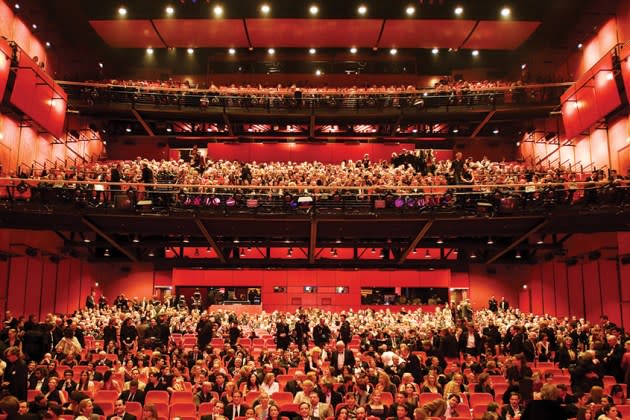How the Publicly-Funded Berlin Film Festival Is Coping With Rising Far-Right Presence in German Politics

Germany’s culture minister Claudia Roth has defended the controversial decision to invite several members of the increasingly ostracized far-right Alternative for Germany (AfD) party to the opening of the Berlinale on February 15.
Roth, who is also behind the Berlinale’s decision to replace incumbent artistic director Carlo Chatrian from 2025, defended the decision by indicating that the AfD officials were democratically elected to the state and federal parliaments. She also issued a blunt warning that individuals “stay away” if they share any of the “anti-democratic… or racist views” that their populist party may represent.
More from Variety
Lajos Koltai's 'Semmelweis' Brings Hungarian Moviegoers Back to Theaters
Synkronized Acquires World Rights for 'The Vortex' Ahead of European Film Market (EXCLUSIVE)
The AfD started as an anti-Euro party a decade ago but morphed into a broader far-right movement. It is currently the second largest opposition party in the federal parliament, but is ostracized politically because all other major parties have vowed never to form coalition governments with the AfD.
The party has risen in opinion polls to become the second most popular party in Germany on a platform of anti-Islam, anti-immigration, German national and eurosceptic policies that have attracted voters, mainly in depressed rural areas.
There have been large protests in cities across Germany in recent weeks following news reports that some members of the AfD had attended a clandestine meeting in November to discuss the possibility of deporting migrants, even those who have German citizenship.
In an interview with Der Spiegel magazine, Roth’s spokesman stated that cultural minister, a leader in the Greens party who has also been one of the most adamant critics of the AfD in Germany, had “deeply regretted” that the populist AfD had managed to even win seats in the federal parliament and Berlin state assembly over the last decade as an opposition party.
The spokesman added, however, that it has been a long-held tradition to send invitations to members of the parties represented in those assemblies who serve in committees for culture and film, institutions which are ultimately responsible for funding nearly half of the Berlin film festival’s annual budget of 32 million euros. AfD elected officials have attended Berlinale events in past years; the Berlinale has confirmed that AfD members Kristin Brinker and Ronald Gläser, both leading elected officials in the Berlin state assembly, had been invited to the opening ceremony.
“For the opening of the Berlinale, which was also made possible with considerable federal funding, members of the culture committee in the German parliament were also invited, as we suggested,” Roth’s spokesman said, and that was in accordance with “democratic practice” and the government’s “respect for parliament and its elected representatives.”
“The festival stands for the freedom of art and for the fight against racism, exclusion and discrimination” and that the AfD members of parliament would therefore have to endure “being confronted with precisely this in all its clarity at the Berlinale,” he added. If they can’t handle that, he added, they “should stay away.”
The co-director of the Berlinale, Mariette Rissenbeek, said in an interview with the Berlin newspaper Der Tagesspiegel that she understood why the AfD officials had been invited, adding there was little she could do beyond hoping they wouldn’t show up.
“It’s a huge dilemma,” Rissenbeek said. “But we respect it if the culture minister and the Berlin city government offer some of their tickets to democratically elected officials, even if they are from the AfD. But it’s clear that we do not agree with what the AfD stands for.” She added, “The festival is committed to basic democratic values and against right-wing extremism.”
Gläser and Brinker were not available for comment. But Gläser was quoted in an article in the far-right “Junge Freiheit” newspaper saying that their attendance would be “an antidote against hatred, stupidity and wasteful taxpayer money on cultural events.”
The 74th Berlinale will run Feb. 15 to Feb. 24 with a jury presided over by Lupita Nyong’o. As previously announced, the fest will kick off with the world premiere of “Small Things Like These,” which is directed by Belgian helmer Mielants (“Peaky Blinders”) and stars Cillian Murphy.
Best of Variety
Sign up for Variety’s Newsletter. For the latest news, follow us on Facebook, Twitter, and Instagram.

